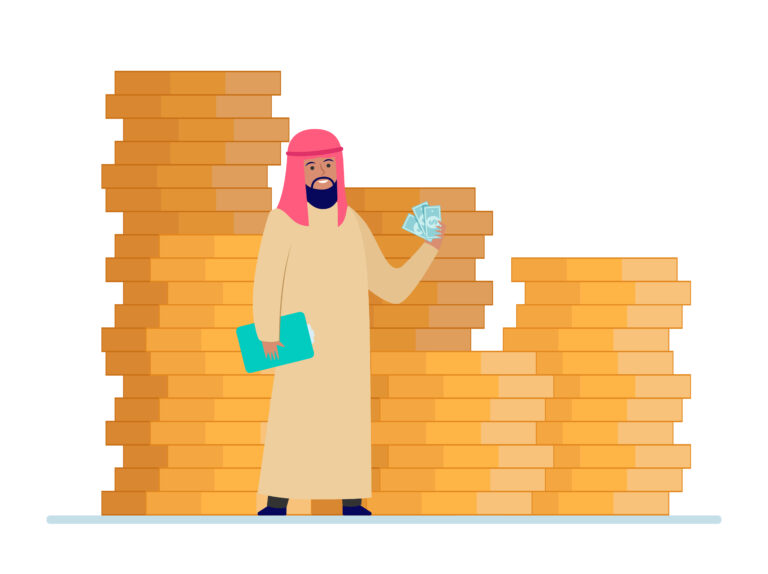Beginner Islamic Finance
Online learning provides flexible and convenient access to education and a wider range of courses.
₦15,600.00
₦26,400.00
₦3,000.00
₦3,000.00
₦6,000.00
Hi, Welcome back!
Course Curriculum
ISLAMIC FINANCE
- The Prohibition of Riba (Interest), Gharar (Uncertainty) and Maysir (Gambling)
- The Importance of Asset-Backing and Risk-Sharing in Islamic Finance.
- The Concept of Money as a Medium of Exchange, Not a Commodity
- The Role of Islamic Finance in Promoting Social Justice and Equality
- The principles of profit and loss sharing in Islamic finance
- The role of Islamic banks in promoting economic development
- Comparing Islamic banking with conventional banking.
- What is Mudaraba
- How does Muradaraba Works
- Benefits of Mudaraba
- Mudaraba and Islamic Finance
- The Principles of Islamic Budgeting and Financial Planning
- The Importance of Avoiding Debt and Living Within One’s Means
- The Role of Islamic Finance in Promoting Financial Literacy and Inclusion
- Practical Tips for Managing Money in Accordance with Islamic Principles
- What is Murabaha
- How does Murabaha Works
- Benefits of Murabaha
- Murabaha and Islamic Finance
- The Principles of Halal Consumption and Consumer Ethics in Islam
- The Importance of Moderation and Avoiding Extravagance in Consumption
- The Role of Islamic Finance in Promoting Ethical Consumerism
- Practical Tips for Making Informed and Responsible Consumer Choices
- What is Sukuk
- How does Sukuka Works
- Benefits of Sukuk
- Sukuk and Islamic Finance
- Obligatory Nature of Zakat
- The Different Types of Wealth Subjected to Zakat
- Calculation and Distribution of Zakat
- The Role of Zakat in Promoting Social Welfare and Alleviating Poverty
- What is Ijarah?
- How does Ijarah work?
- Benefits of Ijarah
- Ijarah and Islamic Finance
- What is Musharaka
- How does Musharaka Works
- Benefits of Musharaka
- Musharaka and Islamic Finance
- The Principles and Practices of Waqf (Islamic Endwoment)
- Different Types Of Waqf
- The Role of Waqf promoting Sustainability and social welfare
- Case Studies of Sucessful Waqf projects and initiatives
- Understanding Takaful
- Types of Takaful
- Benefits of Takaful
- Takaful and Risks Management
- We are the Earth Agents
- Our Planet’s Interconnected systems
- Global Citizenship and Cultural Understanding
- Innovation for Sustainable Future
Sustainability, Innovation, Entrepreneurship and Fintech
- Introduction to Sustainability
- Complex Ecosystems and Global Interactions
- Sustainable Resource Management
- Climate Change and Global Solutions
- Sustainable Development and Future Technologies
- Fundamentals of Sustainable Investments
- Introduction to Sustainable Investments
- Types of Sustainable Investments
- Identifying and Evaluating Sustainable Investments
- The Impacts of Sustainable Investments
- Generating Funds for Investments and Other Projects
- Budgeting and Financial Planning
- Collaborating Fund Raising Strategies
- Grant Writing and Proposal Development
- Innovative Funding Approaches
- Corporate Social Responsibility
- Environmental Stewardship in Business
- Community Engagement and Social Impact
- Responsible Innovation and Future-Focused Business
- Ethical Business Practices
- Understanding Innovation
- Developing a Creative Mindset
- Problem Solving Skills
- Collaboration and Communication
- Observing and Solving Problems
- Creating Value and Innovative Solutions
- Collaboration and Volunteering
- Patience and Delayed Gratification
- Understanding the Lean Start Up Approach
- The Build-Measure-Learn Cycle
- Creating a Lean Canvas
- Testing and Improving Your Idea
- FINTECH in Everyday Life
- The Evolution of FINTECH
- FINTECH around the world
- Ethical considerations in FINTECH
- Diversity of FINTECH Careers
- Skills for FINTECH Success
- FINTECH Education and Training
- FINTECH Entrepreneurship
- Advanced Online Banking Features
- Digital Budgeting Tools and Strategies
- Saving and Investing Online
- Online Financial Security
- Types of Online Threats
- Protecting Personal Information
- Responding to Cyberbullying
- Being a Responsible Digital Citizen
- What is Money
- Earning and Saving Money
- Spending and Budgeting
- Naira Adventure
- Introduction to Naira
- Establishment of the Central Bank and Introduction of Naira
- Evolution of the Naira from Introduction to Present Day
- What Makes Naira Valuable
- Figures on Bills and their Significance
- Why Naira is Valuable
- The Value of Money
- Understanding the role and importance of Money
- Budgeting and financial goal setting
- Making informed decisions
- The relationship between Money and Emotion
- Needs VS Wants
- Budgeting and Planning
- Making Informed Decisions
- Prioritization
- Fulfilling our Basic Needs
- Counting Money and Giving Change
- Money Defined
- We earn to Count
- Coins and Bills
- Transacting with Money
- What is Savings?
- Fundamentals of Savings
- Setting Savings Goals
- Counting and Tracking Savings
- Making Wise Spending Choices
- Borrowing and Paying Back
- Business Partnership
- Types of Borrowing
- Responsible Borrowing
- Earning Money
- Understanding the Concept of Earning
- Different Ways to Earn Money
- Developing Skills and Ethics
- Responsibilities and of Earning Money
- Advanced Budgeting Concepts
- Budgeting Tools: From Paper to Digital
- Long term financial Planning
- Budgeting for Projects and Events
- Giving and Donations
- The Importance of Giving and Donation
- Different Ways to Give and Donate
- Solving Societal Problems through Giving and Donation
- Being a good Citizen through Giving and Donation
- Types of Taxes
- Progressive vs. Flat Tax Systems
- Government Spending and Public Services
- International Taxation and Global Issues
Course Materials
Course Videos Games Flip book e-book
Worksheets Quizzes
Learning Guide.
Requirements
- A Computer or Tablet.
- A strong Internet Connection
- A quiet environment to help the candidate concentrate on the course is required


